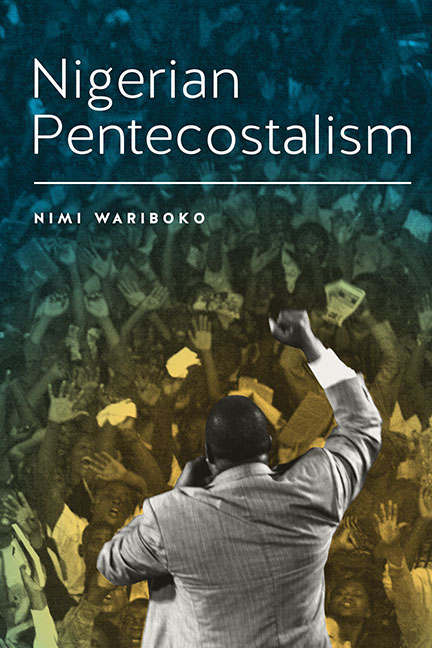Foreword
Published online by Cambridge University Press: 15 March 2018
Summary
There are at least seven registers through which the arguments of this volume can be read.
First, there is the philosophical thread. Here, the discussion moves seamlessly from epistemology to ontology to performative theory, inspired by Nigerian Pentecostal ways of knowing, to probe ever more deeply into how Nigerian Pentecostal reality is constituted, and returning therein via the hermeneutical spiral to reconfigure how such probing can further inform epistemic analyses. All the while, the modality of engagement does not remain merely abstract but connects to and is concerned about Pentecostal performance, ways of life, and modes of behavior. Here again, performative analyses are interwoven with epistemological perspectives and ontological constructions, each moment derivative of but ever always also informing the other two.
Second, one can read this book as a contribution to political theory and political economy. From this angle, readers pivot from contemporary theories of human embodiment toward social theory on the one side and ecclesial theory (ecclesiology) on the other. This means that social theorists will be confronted with the nature of Nigerian Pentecostal ecclesiality on the one hand and ecclesiologists will be challenged to engage with social and economic dynamics on the other, while both will be challenged and informed by recent developments that root social subjectivation in interpersonal and embodied interrelationality. The intersubjectivity of embodied creatures, meanwhile, has the potential to unleash spiritual powers, both ecclesially and socially, politically, and economically, sometimes separately but more often together. Herein lies the kind of political theory that is relevant to our present postmodern context, one that can navigate the interfaces of the sacred and the secular, helpfully distinguishing them where appropriate but more often seeing their interconnection, a capacity much more needed in our postsecular time.
Third, gains made in the political-theoretical domain open up to other dimensions of contemporary relevance, including but not limited to cultural theory, race analyses, and postcolonial studies. Nigerian Pentecostalism as a case study illuminates the processes of cultural formation (also of deformation and transformation), invites consideration at the intersection of race and religion (of the burden of, and also the opportunities for, blackness in a post-European world), and exposes the contradictions of Protestant religion in the postcolony (as biblically informed, missionary-influenced, and yet indigenously inspired religiosity), all the while charting trajectories of research in these arenas.
- Type
- Chapter
- Information
- Nigerian Pentecostalism , pp. ix - xiiPublisher: Boydell & BrewerPrint publication year: 2014

